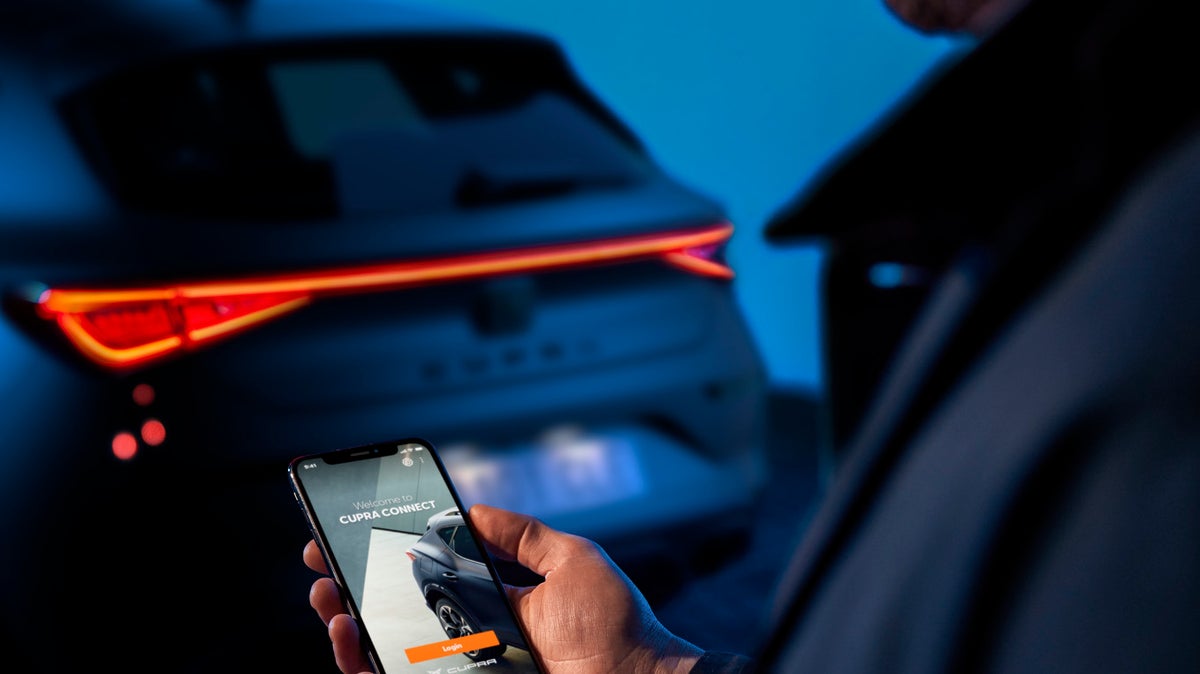
Myth #1: “EVs are more expensive than Internal Combustion Engine Cars”
Currently, the list price of electric vehicles is often higher than similar internal combustion engine cars. But, as everyone in the trade will tell you, the upfront cost is often misleading. What you need to bear in mind is the Total Cost of Ownership, which takes into consideration running costs, servicing, insurance, and road tax, (from which electric vehicles are exempt until 2025). By this metric, EVs are more than competitive. And if your EV is a company car you’ll save on vastly reduced Benefit in Kind payments. As the experts at What Car? magazine put it: "The Cupra Born is such a good all-round car that it gets What Car?’s maximum five-star rating. And like all EVs, it will be cheap to run."
Myth #2: It costs just as much to charge an EV as it does to fill a car with petrol
One of the persistent misunderstandings with EV charging is the assumption that there’s a flat rate however you do it. But as National Fleet Manager Justin Costello illustrates, it’s similar to petrol. “If you buy petrol at a local supermarket, it’s cheap. If you buy it at a motorway service station, it’s significantly more expensive. Expensive motorway charging will be a low proportion of overall charging for most users. You want to be charging every night or every other night at home. If you’ve got the right tariff and the right meter you’ll be doing it super off-peak at a really competitive cost. You need to be smart about when to charge. And remember, you don’t always have to charge it up to 100%, just charge it the right percentage for the journey.”
“You need to be smart about when to charge. And remember, you don’t always have to charge it up to 100%”, says National Fleet Manager Justin Costello— (CUPRA)
Myth #3: EVs don’t have the range I need
The range of electric cars has improved dramatically in recent years with cars like CUPRA’s Born able to run for up to 342 miles (WLTP)* on a single charge, the equivalent of six or seven hours of driving time. As Contract Hire and Leasing Manager Martin Gray puts it, “Nobody drives a car with an internal combustion engine for seven hours without stopping. With EVs, there are apps which enable you to plan your journey so you can stop at the right time.” And when it comes to motorway charging it’s important to remember that you rarely stop at the services just for fuel. “Even if I’m in an ICE car, I’m still likely to stop for 35-40 minutes; recharging an EV is only an extra 15-20 minutes.”
Myth #4: The charging infrastructure isn’t good enough
In August this year, there were nearly 50,000 charging points across nearly 30,000 locations in the UK, up more than 40 per cent than the year before. As Area Fleet Manager Mark Penny says: “There are a lot of preconceived ideas about things like the charging infrastructure, which get dispelled when people actually get out driving in the cars.” Martin Gray, who drives regularly from his base in Scotland down to CUPRA’s HQ in the South of England, is similarly confident about the ease of charging on long journeys: “I can count on one hand the times I’ve had to wait for a motorway charging point.”
Myth #5: The batteries need to be frequently replaced and can’t be recycled
A frequently heard criticism of EVs is that their batteries undermine their green credentials, but the batteries used in the CUPRA cars have an impressive eight-year life and are fully recyclable. But as Justin Costello points out, the most environmentally friendly thing to do with them is reuse them: “Rather than strip it and reuse the materials, the smartest thing to do is to use it in a different way. One recycling company is taking them out of vehicles, and then putting them into the home environment to help with the solar array.” And in 2021, the first plant for the further development of an innovative recycling process was opened at the Volkswagen site in Salzgitter. The work undertaken at this plant makes it possible to recover and recycle more than 90% of the valuable raw materials, and it only recycles batteries that can no longer be used for other purposes.
Find out more here about the benefits of switching to EV and how CUPRA can help you on your EV journey
*The CUPRA Born is a battery electric vehicle. Figures shown are for comparability purposes; only compare electric range figures for battery electric vehicles tested to the same technical procedures. These figures may not reflect real life driving results, which will depend upon a number of factors including the accessories fitted (post-registration), variations in weather, driving styles and vehicle load. Battery electric vehicles require mains electricity for charging. Figures based on a fully charged battery.







